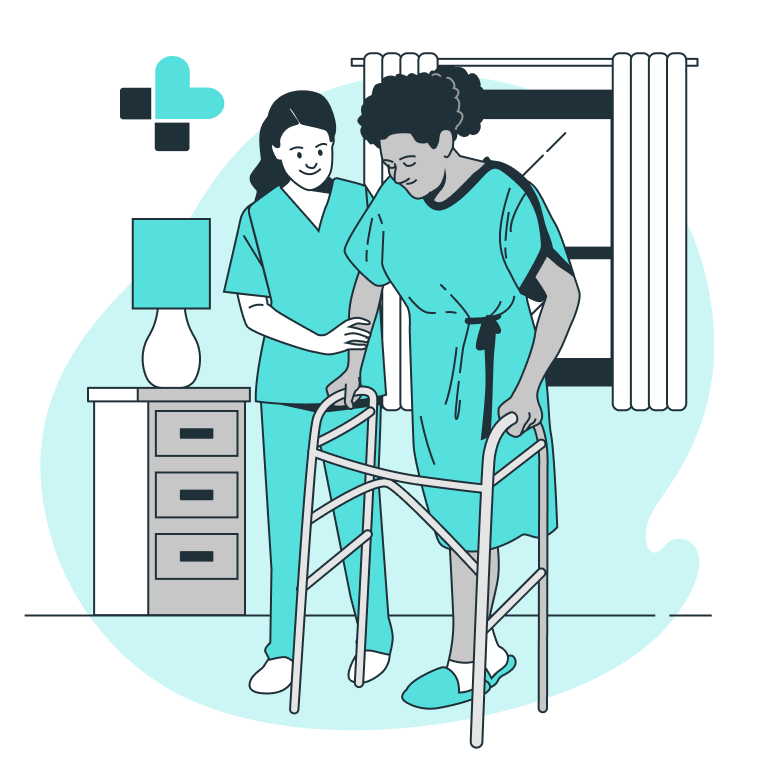On This Page:
Fascinated with women’s health issues? Known as a champion for holistic care? Now is the time to become a women’s health nurse practitioner. If you’re already committed to a DNP, feel free to skip ahead to our program listings. But if you’d like some background information on job responsibilities, WHNP certification, capstone projects, and the DNP curriculum, read on!
Becoming a Women’s Health Nurse Practitioner
The Modern Women’s Health Nurse Practitioner
Women’s Health Nurse Practitioners (WHNPs) are advanced practice registered nurses (APRNs) who provide comprehensive care to women of any age. Although they are especially concerned with reproductive and gynecological care, the range of their responsibilities encompasses:
- Well-woman care
- Perimenopause and menopause
- Prenatal, pregnancy, and postpartum care
- Family planning and fertility control
- Health assessment and disease prevention
- Acute and chronic illnesses, including cancer, HIV/AIDS, and eating disorders
- Substance abuse problems
- Spousal or sexual abuse
- Parenting behaviors and skills
- Health promotion, education, and counseling
On any given day, WHNPs may be teaching health education to teens, making house calls to women who miss prenatal appointments, seeing patients in OB-GYN clinics, or advising government policymakers. WHNPs are hyper-aware of ethical and legal concerns regarding women’s health, and work hard to produce holistic healthcare plans that take into account their patients’ concerns. Some WHNPs choose to practice in hospitals, hospices, primary care facilities, and clinics; others may work independently in private practice, correctional facilities, or government organizations.
Helpful Professional Organizations
- American Association of Colleges of Nursing (AACN)
- American Association of Nurse Practitioners (AANP)
- American Nurses Credentialing Center (ANCC)
- Association of Women’s Health, Obstetric and Neonatal Nurses (AWHONN)
- National Certification Corporation for the Obstetric, Gynecologic, and Neonatal Specialties (NCC)
- National Association of Nurse Practitioners in Women’s Health (NPWH)
WHNP Certification Requirements
 After you earn your DNP, you may wish to consider the Women’s Health Care Nurse Practitioner (WHNP-BC) certification from the National Certification Corporation (NCC).
After you earn your DNP, you may wish to consider the Women’s Health Care Nurse Practitioner (WHNP-BC) certification from the National Certification Corporation (NCC).
Check with your State Board of Nursing to find out whether WHNP certification is necessary. DNP programs should clearly state that they are accredited and meet NCC requirements. If you can’t find the information on the program website, ask the school for its student pass rates on the WHNP certification exam.
WHNP-BC Requirements
- Hold a current, active RN license
- Earn a master’s, post-master’s qualification, or DNP from a women’s health nurse practitioner program that meets NCC requirements.
- Pass the WHNP-BC exam administered by the NCC (applicants must take the certification examination within 8 years of graduation).
- Maintain your certification through continuing education.
Please check the NCC website for further details on eligibility requirements. There is no minimum requirement for clinical practice hours for the WHNP-BC.
WHNP Essential Competencies
The NCC specifies a number of essential competencies that are covered in the certification exam. According to the NCC, WHNPs should be able to:
- Obtain general, obstetric, and gynecologic histories
- Perform screening, prenatal, and gynecological exams
- Obtain and interpret diagnostic studies and lab tests
- Provide management and education on women’s health, pregnancy, family planning, and fertility control
- Screen for high-risk pregnancies, pregnancy complications, and postpartum complications
- Identify and diagnose non-gynecologic and gynecologic deviations from normal and provide management, education, or referrals as needed
- Initiate pharmacologic therapy as appropriate
- Interpret scientific studies and identify ethical, legal, and professional issues
The Women’s Health Nurse Practitioner DNP
Typical DNP-WHNP Curriculum
Most WHNP programs are listed as “graduate tracks” or “concentrations” in DNP degrees. In other words, you start by taking general APRN courses and gradually concentrate on areas such as obstetrics, adult gerontology, and primary care for women. Good schools will build their curriculum around AACN competencies. Thinking about WHNP certification? Ask if the courses and clinical work cover the NCC’s essential competencies.
When you’re comparing programs, look for DNPs that will expose you to a wide range of clinical training experiences. Working with diverse women patients (e.g. disadvantaged and multicultural populations) in a variety of settings (e.g. city hospitals, rural facilities, specialty clinics, administrative offices) will prepare you for a long and solid career.
In terms of coursework, you should expect to take APRN classes in advanced pharmacology, advanced pathophysiology, epidemiology, and advanced physical/health assessment, as well as content in health promotion, disease prevention, and differential diagnosis. Women’s health curricula often include courses in gynecology, obstetrics, and non-reproductive health problems. The rest of your time will be taken up with classes in DNP areas such as leadership, statistics, ethics, and healthcare policy. All of this work culminates in an independent DNP capstone project that combines your research work with evidence-based practice.
DNP-WHNP Experience Requirements
Experience requirements vary from program to program. In general, most schools will expect you to have at least two years of full-time clinical experience as an RN. Many of these RNs work in areas of maternal health or women’s health to get a feel for the field. A lot of schools will recommend you spend some time shadowing a WHNP before you make the decision to pursue a DNP.
Examples of DNP-WHNP Capstone Projects
- Barriers and Facilitators to Adherence to Follow-up for Abnormal Cervical Cytology: A Review of the Evidence with Implications for Clinical Practice (Ohio State University)
- Effective Treatments for Sexual Dysfunction in Menopausal Women (Frontier Nursing University)
- A Timely Approach to Improving Postpartum Follow-Up at an Outpatient Clinic (Frontier Nursing University)

